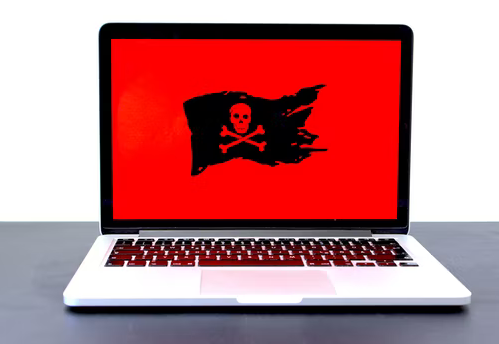Viruses, spyware, worms, and everything that breaches your computer and affects it is malware. Many years ago, viruses and other types of malware were created by people who just wanted to play around and prank each other.
However, it has now become an efficient way for criminals to steal your information, credit card details, and other highly confidential pieces of information. If you store all your personal and banking information on your Pc or laptop, it’s time to learn how to protect yourself against cybercriminals. Here’s a complete guide to keeping your computer safe.

Avoid Suspicious Sites
Most malware comes from the internet, as it’s the easiest way for criminals to hack into your computer. You can click on a site and the virus or spyware will automatically be installed. What you should do is first investigate any suspicious links; if someone sends you a link, be sure to inquire about its source and how safe it is. You can also search for reviews to know what other people are saying about this site, or you can run it through software that checks its safety.
Malware Protection
There are endless ways for cybercriminals to hack into your computer, and it doesn’t matter whether you’re using Windows OS or Mac OS. Even those who are extremely careful are at risk of getting hacked by malware. Software engineers from Sohpos’ malware protection claim that your everyday software antivirus is not powerful enough to stand against professional cybercriminals. However, adding a second layer of protection to your software will eliminate the risk of getting a virus.
Scan All Your Downloads
The second most popular method criminals use to get into your computer is through downloaded files. Pirated material such as music, movies, books, or any file that requires downloading from a suspicious link is most probably a portal for criminals to gain access to your PC. Any documents that you download from the internet, even if it’s from a reputable site, can contain viruses. To stay on the safe side, activate your malware protection to scan all files and documents before downloading them. This will ensure your computer’s safety.
Keep Your Software Updated
Many people believe that all you need to do to protect your computer is download software and malware protection and that’s it. However, in order for them to work efficiently, they need to remain up-to-date. When software and malware protection succeed in eliminating those threats, cybercriminals upgrade their methods to hack into the newly protected systems, which then forces malware protection companies to upgrade their systems as well, and so on. Each update contains the new ways, links, and codes that those hackers use up until today.

Protecting your computer from different types of malware can seem difficult. However, if you always keep your software updated, and avoid clicking or downloading suspicious links, you’ll reduce the risk of getting hacked. You should also avoid using external drives and USBs that aren’t yours. If you have to, ensure you scan it before using it. Back up all your files on an external drive or on the cloud to mitigate the risk of losing your work and essential documents.
